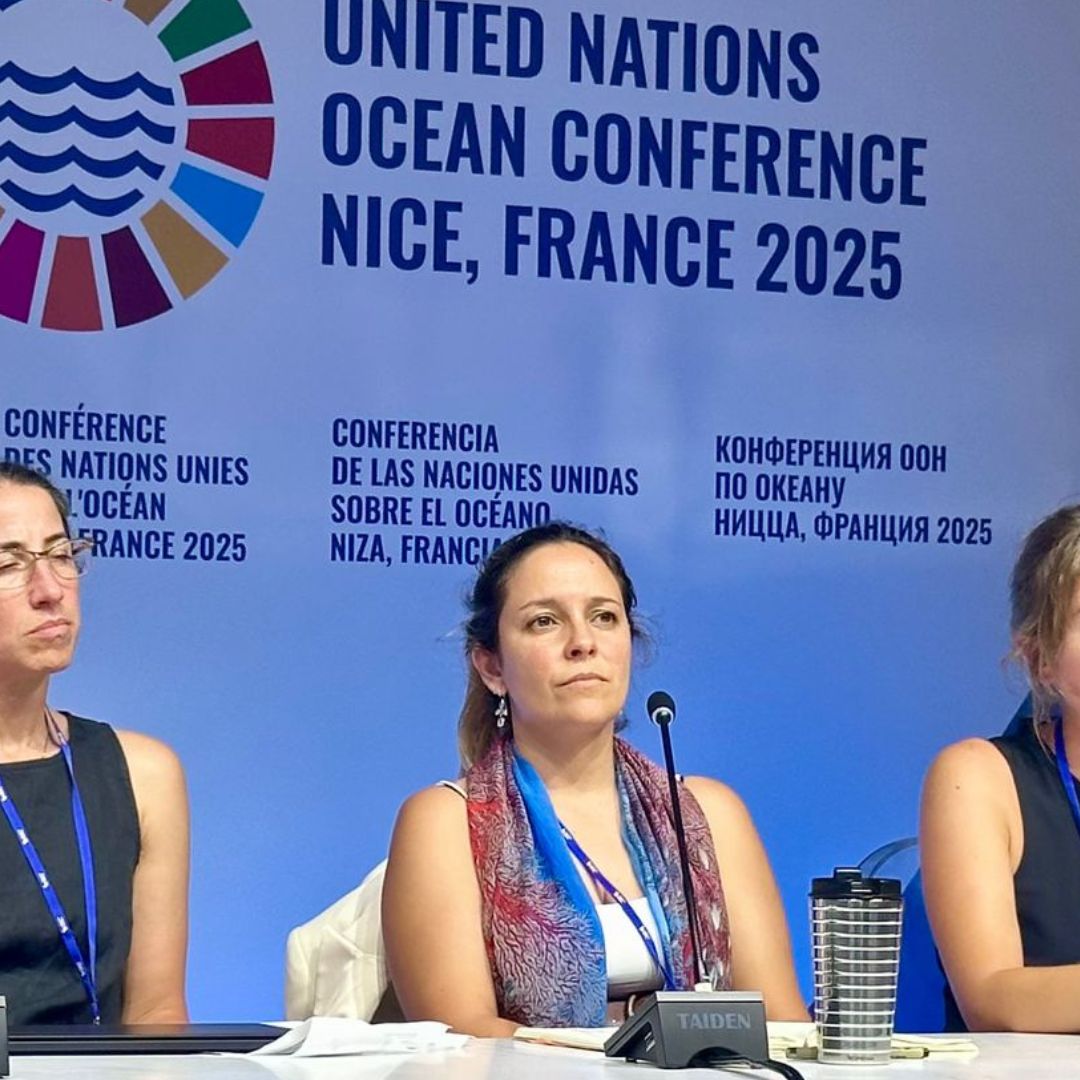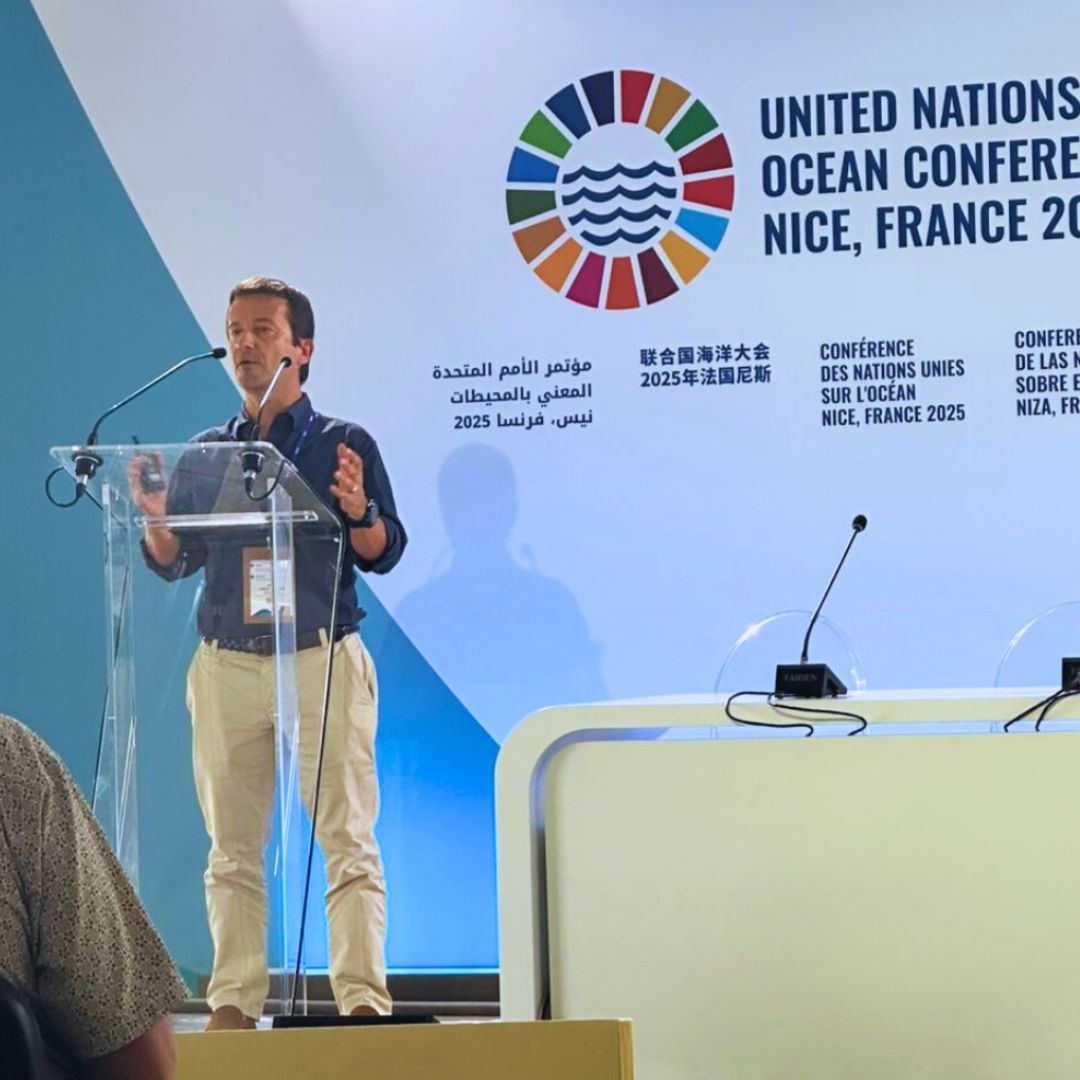João Canning-Clode and Catarina Frazão Santos represent MARE at the One Ocean Science Congress
Between June 3 and 6, MARE researchers João Canning-Clode and Catarina Frazão Santos were in Nice to take part in the One Ocean Science Congress, an event that precedes the United Nations Ocean Conference, which is taking place over the next few days.

Catarina Frazão Santos, contributed to two sessions dedicated to Ocean Governance and Management, under Theme 10. The first intervention took place on the 3rd, in a session organized by Brice Trouillet, with the participation of experts Rafael Magris, Ratana Chuenpagdee, Ndickou Gaye and Eddie Allison. Together, they discussed the main challenges in ocean governance.
Catarina's second presentation took place in a session moderated by Peter Haugan, where speakers such as Sabrina Speich, Elizabeth Havice, Judith van Leeuwen, Patrick Debels, Erik van Doorn and Abigail Meyer were also present. Catarina presented the work of the PLAnT project, with a talk entitled “Taking Climate-Smart Science and Governance to the High Seas”, highlighting innovative strategies for ocean governance adapted to climate change.

On June 5, João Canning-Clode, researcher at MARE and director of MARE-Madeira, gave a talk entitled “Building Blue Futures”. In it, he shared his vision of creating a training space where young people can acquire skills for careers with a positive impact on the ocean. The program aims to strengthen the exchange of knowledge between Madeira, other islands, Africa and regions of the Global South, promoting a community linked to the ocean and its potential to inspire art, entrepreneurship and international collaboration. The Blue Skills Academy (Academia Azul), a growing project, held its first workshop last year in 2024.
The main objective of the One Ocean Science Congress is to provide Heads of State, government officials and society in general with comprehensive scientific knowledge about the health of the oceans and their possible futures. In this third edition, the congress brought together more than 2,000 scientists from around the world, 33 Town Halls, as well as 500 oral presentations and more than 600 scientific posters.
